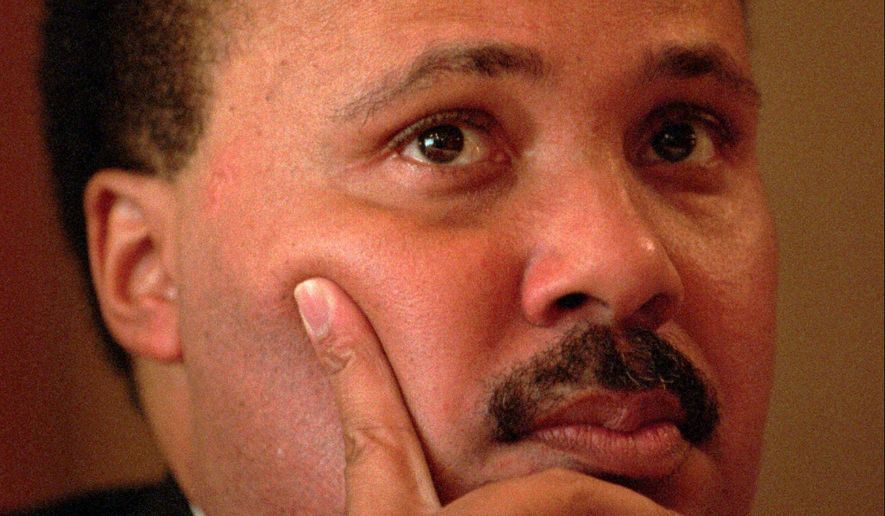Martin Luther King III and Sen. Bernard Sanders think voters’ rights in America still need to improve, and they expressed their concerns at the MLK Memorial in Washington on Thursday, which marked the 50th anniversary of the Voting Rights Act.
Mr. King and Mr. Sanders acknowledged how far the country has come in safeguarding disenfranchised voters since the act became law under pressure from the civil rights movement led by the Rev. Martin Luther King Jr.
But they also criticized the Supreme Court for striking down the law’s Section 4(b), which applied a “coverage formula” that determines which state and local jurisdictions with histories of voter discrimination to “pre-clear” with the Justice Department any changes to their voting laws.
The court ruled that the section was based on outdated data and, because Congress hasn’t passed a formula to replace it, the pre-clearance requirement is effectively a dead letter.
Mr. King said the court’s 2013 Shelby v. Holder decision opened a floodgate for states to adopt legislation that ultimately would harm voters’ rights, but cited hope in a decision Wednesday by the 5th U.S. Circuit Court of Appeals.
That appeals court struck down a 2010 voter ID law from Texas, opining that it “creates an unconstitutional burden on the right to vote.”
The court cited expert testimony that about 600,000 Texans — mostly poor minorities — did not have the state-required IDs.
“Two hours after the [Supreme Court] gutted [the Voting Rights Act], the state of Texas passed the most repressive ID laws, but because of an appeal yesterday the court struck it down,” Mr. King said only a few yards away from a solid granite statute of his father that overlooks Washington’s Tidal Basin.
“That shows there is progress. That shows that these ID laws are discriminatory. We don’t know what the impact is going to be on the 2016 election. For example, in my own home state of Georgia, the secretary of state purged a half-million people from the rolls because they had not voted in two consecutive elections. What that means is if you come to vote, you may find that you’re not even registered. People are being repressed and the franchise is not being used at its maximum.”
Mr. King told The Washington Times that he believes a free, universal ID card may be a solution that could help curb voter fraud without disenfranchising people.
Mr. Sanders, a Vermont independent who is seeking the Democratic presidential nomination next year, said he is proposing legislation that would require automatic voter registration at age 18.
“We already have serious problems in terms of voter turnout — lower than many other countries and in terms of how we register people to vote,” he said. “In my view we will make voter registration automatic. It shouldn’t be complicated. If you’re 18 years age, guess what? You’re registered to vote.”
Mr. Sanders also said people who oppose such a plan are unpatriotic and should leave the country.
“If we believe in a vibrant democracy, we want to have the highest voter turnout in the world — not the lowest. Everybody in America is entitled to vote, and if you don’t like it, then move to a country that doesn’t believe in democracy,” said Mr. Sanders, a self-identified socialist.
He also praised congressional efforts to help disenfranchised voters, citing a bill proposed by Sen. Charles E. Schumer, New York Democrat, this month to guarantee early voting and online voting so Americans are not limited to going to the polls on Tuesdays.
“If you want to have a party, would you have it on Tuesday if you wanted folks to come?” Mr. King asked. “We should have a longer voter period. There are several bills on the table, but the question is, will they get out of committee? Unless we actively engage, we are going to stay in the same position.”
• Jeffrey Scott Shapiro can be reached at jshapiro@washingtontimes.com.




Please read our comment policy before commenting.